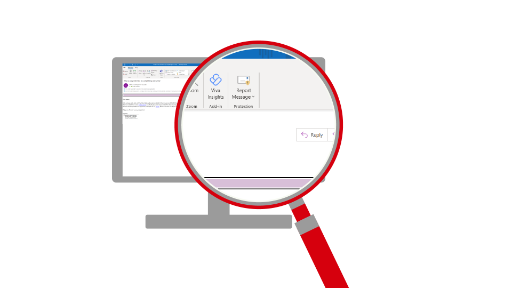Catch the Golden Phish – go phishing for a prize!
Catch and report the simulated ‘golden phish’ email for a chance to win a prize!
What to do?
October is Cyber Security Awareness Month and throughout the month the QUB Cyber Security Team will send one simulated phishing email to members of staff.
Staff who catch and report the simulated phishing email using the Outlook ‘Report Message’ button will get a chance to win a prize. 
This simulated phishing email will be based on a real-world phishing attempt.
What are the prizes?
1 x ViewSonic M1 Mini Projector
1 x £50 vouchers for the shop at the QUB Welcome Centre: https://shop.qub.ac.uk/
Winners will be randomly selected from all successfully reported emails.
What is phishing?
'Phishing' is when criminals use scam emails, text messages or phone calls to trick their victims. The aim is often to make you visit a website, which may download a virus onto your computer, or steal bank details or other personal information.
How to spot a phishing email
There are many tell-tale signs of a fraudulent email:
- False Sense of Urgency – Many scam emails tell you that your account will be in jeopardy if something critical is not updated right away.
- Spelling and grammar mistakes – Often these emails contain multiple spelling or grammar mistakes or look unprofessional.
- Fake Links – The email may contain links that look genuine but are not. Check where a link is going before you click by hovering your mouse over the link in the email and comparing it to the link that is actually displayed. If the link looks suspicious, don't click on it.
- Invalid sender email address – Bear in mind that the sender can disguise their email address to make a fake address seem genuine.
- Generic greeting – Phishing emails will often greet you as “Dear email user” or similar.
- Attachments – The vast majority of organizations will never send you unsolicited attachments or software. Attachments can contain viruses or malware, so you should never open an attachment unless you are 100% sure it comes from a legitimate source. Be extra careful with zipped attachments. If you do not know the sender, do not open the zipped attachment.
ACE-CSE
Queen’s holds an Academic Centre of Excellence in Cyber Security Education (ACE-CSE) Silver Award from the National Cyber Security Centre (NCSC) and the Department for Science, Innovation & Technology (DSIT).
More information
Email cybersecurity@qub.ac.uk for more information.
